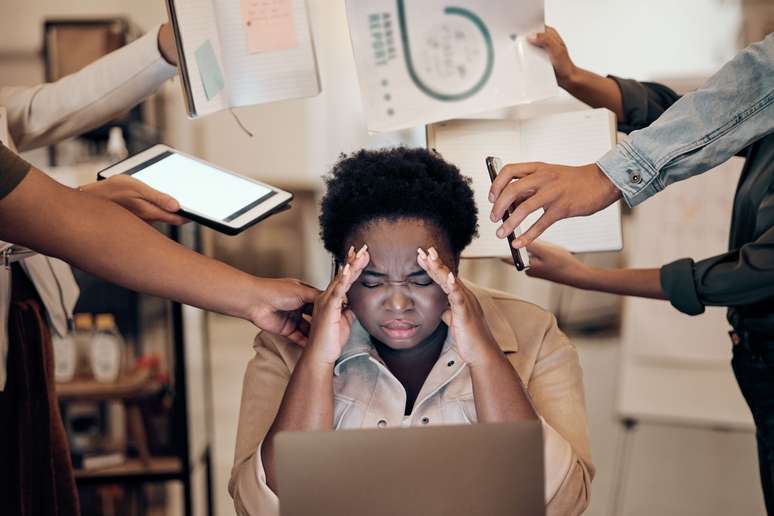Overload of responsibility, cultural expectations and gender inequalities affect women’s mental health; The psychologist faces possible ways to take care of well -being
Social collection for women to recite in several roles – how to take care of the family, manage household chores, maintain their professional career and adapt to rigid aesthetic models – directly affects their mental health. According to the latest edition of Vigil searchConducted by the Ministry of Health, 12.3% of Brazilians over the age of 18 is diagnosed with depression. The number increases to 16.8% considering only women, but drops to 7.1% among males.
With the arrival of women in the labor market, they left the exclusive dedication to unpaid internal work and family assistance, taking professional careers and expanding their performance away from home. However, this movement was not accompanied by a proportional transformation in the role of men, who focused mainly on paid work.
The data issued by the third edition of the gender statistics study: the social indicators of women in Brazil, by the Brazilian Institute of Geography and Statistics (IBGE), reflect this scenario. While women dedicate themselves 21.3 Hours weekly with unpaid tasks, men spend only 11.7 hours. Consequently, they accumulate a double trip, balancing job requests with household chores and the care of their children.
For Elisama Silveira, a professional in the area of the psychology of Amarsaúde, many women feel under pressure to be perfect and this generates a difficult emotional overload. “These accumulated responsibilities can contribute to sensations of stress, tiredness, anxiety, irritability and even depression,” he says.
The roots of female emotional overload
According to Silveira, most of the emotional overload of women is the result of a series of interconnected factors, ranging from social and cultural expectations to gender inequality. “This difficult balance between career, family and personal life has become a constant challenge. At the same time, aesthetic pressure and lack of support in motherhood further aggravate this situation,” he explains.
The professional also stresses that inequality in the labor market has a great impact on this scenario. “The difference in salary, the difficulty of accessing leadership positions and gender prejudice directly affects self -esteem and safety of women, contributing to disorders such as anxiety, depression and burnout,” he says. In addition, situations of violence – emotional, physical or sexual – can have a significant impact on mental health.
This is because, when it comes to a paid job, that is, the one that is done outside the scope of the tasks, the double journey makes women even the women more affected by the Burnout syndrome, while experiencing 73% The more this problem of men, according to the Experience Expectee FIA survey.
The weight of cultural expectations
For the psychologist, cultural expectations moderate the way women see each other and often generate feelings of guilt and inadequacy. “There is a pressure to be successful in all areas of life, which leads to perfectionism and self -criticism,” says Silveira. The professional also underlines that the accusation of demonstrating empathy, patience and resilience in all situations can generate a constant feeling of not being sufficient.
If at work gender inequality is an exhausting factor, the problem is also manifested at home, since many women are still considered mainly responsible for family assistance. “This overload of responsibility can cause chronic stress, social isolation and physical and mental fatigue. It is essential that women recognize their limits and know that they do not need to manage everything alone,” says the psychologist.
When to seek help?
The signs of emotional overload can vary from one person to another, but some symptoms are common and should be vigilant. According to Silveira, it is important to observe signs such as irritability, frequent crying, constant tiredness, headache, muscle tension, accelerated thoughts, insomnia, social isolation and loss of interest for previously pleasant activities. “If these symptoms become recurrent, it is essential to look for psychological support. Speaking with someone reliable or seeking the help of a professional can make a difference,” says the psychologist.
How to live lighter
To deal with emotional overload, the professional suggests some practical strategies that can be incorporated into everyday life:
- Reduce the unpaid workload: negotiating and delegating tasks in a balanced way, without fear of asking for help;
Website: https://www.amorsaude.com.br/
Source: Terra
Rose James is a Gossipify movie and series reviewer known for her in-depth analysis and unique perspective on the latest releases. With a background in film studies, she provides engaging and informative reviews, and keeps readers up to date with industry trends and emerging talents.








